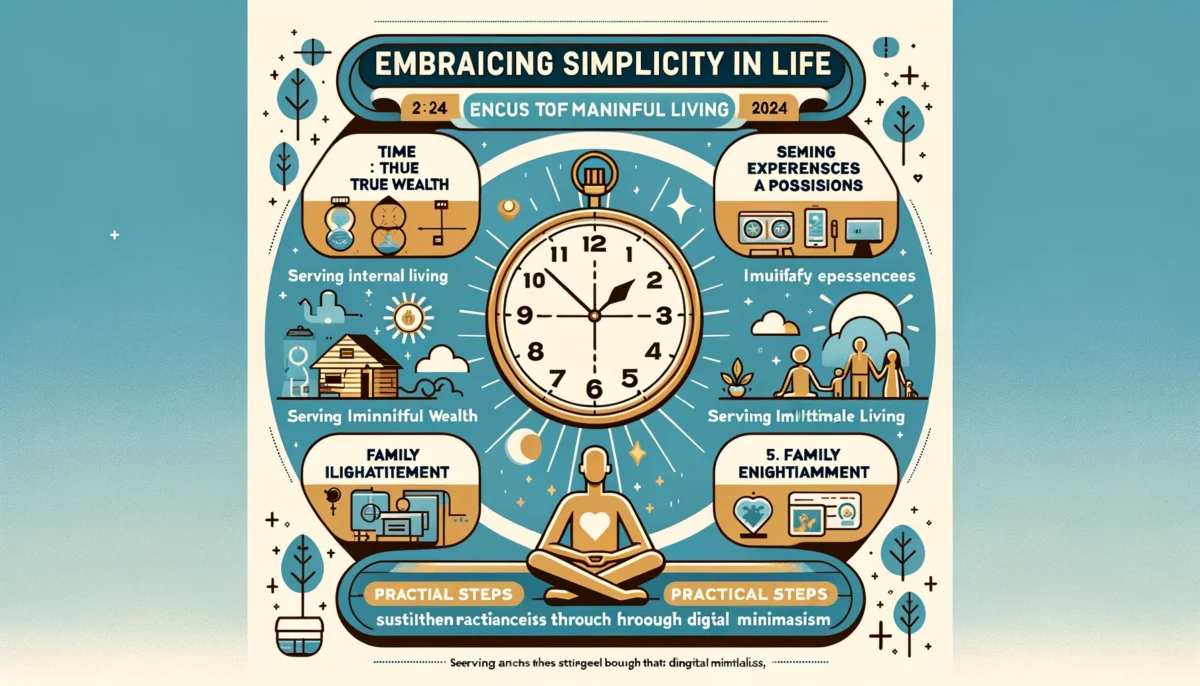In the whirlwind of technological advancements and consumer-driven societies, the year 2024 has ushered in an era where ‘less is more’ is not just a saying, but a lifestyle. The concept of simplicity, once viewed as mere minimalism, has evolved into a profound philosophy impacting every facet of life. This article delves into how embracing simplicity can lead to a richer, more fulfilling existence.
The Essence of Simplifying Life
Simplicity in 2024 isn’t just about decluttering your home or choosing a minimalist wardrobe. It’s a deeper, more intentional choice to focus on what truly matters. In a world constantly vying for our attention, choosing to live simply is a form of rebellion against the norm of excess. It’s about finding beauty and contentment in the ordinary, and understanding that the greatest luxuries often lie in moments, not material possessions.
Time: The True Wealth
One of the most significant outcomes of simplifying life is the abundance of time it creates. Time is the one resource we can’t renew. By reducing our material burdens and the desire for more, we open up space to invest our time in what truly enriches our lives: personal passions, deep relationships, and self-growth. Simplifying life means prioritizing these aspects, understanding that they contribute more to our happiness and well-being than any physical object ever could.
Serving the Internal God: Value Addition to Life
At the heart of simplifying life is the concept of serving the ‘internal god’ – a metaphor for our inner self or soul. This approach fosters a life driven by purpose and values rather than societal pressures or materialistic pursuits. It’s about aligning daily actions with inner morals and beliefs, leading to a more harmonious and fulfilling life. Simplifying allows us to focus on adding value to our lives and the lives of others, creating a ripple effect of positivity and purpose.
Family Enlightenment and Progress
Simplification also plays a crucial role in family dynamics. In an age where digital distractions are rampant, choosing a simpler life can strengthen family bonds. It encourages quality time spent together, engaging in meaningful conversations, and participating in activities that promote collective growth. Families that embrace simplicity often find themselves enjoying deeper connections and a shared sense of progress and enlightenment.
Practical Steps to Simplify in 2024
To embark on this journey of simplification, one must start with small, practical steps. This could mean adopting sustainable practices, reducing digital consumption, or making conscious choices about spending and lifestyle. It’s about making room for health, both mental and physical, and realizing that our wellbeing is our most precious asset.
Conclusion: An Investment in Life
Choosing to live simply in 2024 is an investment in the most crucial aspects of life: time, relationships, personal growth, and inner peace. It’s an acknowledgment that the best things in life aren’t things at all. As we navigate through the complexities of the modern world, simplicity offers a path to a more mindful, meaningful, and joyful existence. It is a call to action for all of us to reassess our priorities and embrace the profound beauty of a simpler life.























